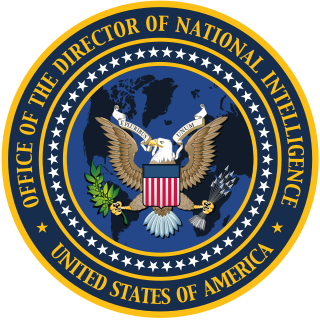
The American Civil Liberties Union (ACLU) is an American nonprofit human rights organization founded in 1920. The organization strives "to defend and preserve the individual rights and liberties guaranteed to every person in this country by the Constitution and laws of the United States." The ACLU works through litigation and lobbying and has more than 1,800,000 members as of July 2018, with an annual budget over $300 million. ACLU affiliates are active in all 50 states, Washington, D.C., and Puerto Rico. The ACLU provides legal assistance in cases where it considers civil liberties at risk. Legal support from the ACLU can take the form of direct legal representation or preparation of amicus curiae briefs expressing legal arguments when another law firm is already providing representation.
The Electronic Privacy Information Center (EPIC) is an independent nonprofit research center established in 1994 to protect privacy, freedom of expression, and democratic values in the information age. Based in Washington, D.C., their mission is to "secure the fundamental right to privacy in the digital age for all people through advocacy, research, and litigation." EPIC believes that privacy is a fundamental right, the internet belongs to people who use it, and there's a responsible way to use technology.
Civil liberties in the United States are certain unalienable rights retained by citizens of the United States under the Constitution of the United States, as interpreted and clarified by the Supreme Court of the United States and lower federal courts. Civil liberties are simply defined as individual legal and constitutional protections from entities more powerful than an individual, for example, parts of the government, other individuals, or corporations. The explicitly defined liberties make up the Bill of Rights, including freedom of speech, the right to bear arms, and the right to privacy. There are also many liberties of people not defined in the Constitution, as stated in the Ninth Amendment: The enumeration in the Constitution, of certain rights, shall not be construed to deny or disparage others retained by the people.

Liberty, formerly, and still formally, called the National Council for Civil Liberties (NCCL), is an advocacy group and membership organisation based in the United Kingdom, which challenges unjust laws, protects civil liberties and promotes human rights. It does this through the courts, in Parliament and in the wider community. Liberty also aims to engender a "rights culture" within British society. The NCCL was founded in 1934 by Ronald Kidd and Sylvia Crowther-Smith, motivated by their humanist convictions.

Nadine Strossen is an American legal scholar and civil liberties activist who served as the president of the American Civil Liberties Union (ACLU) from 1991 to 2008. A liberal feminist, she was the first woman to lead the ACLU. A professor at New York Law School, Strossen is a member of the Council on Foreign Relations and other professional organizations.
Harris Corporation was an American technology company, defense contractor, and information technology services provider that produced wireless equipment, tactical radios, electronic systems, night vision equipment and both terrestrial and spaceborne antennas for use in the government, defense, emergency service, and commercial sectors. They specialized in surveillance solutions, microwave weaponry, and electronic warfare. In 2019, it merged with L3 Technologies to form L3Harris Technologies.

Anthony D. Romero is an American lawyer who serves as the executive director of the American Civil Liberties Union. He assumed the position in 2001 as the first Latino and openly gay man to do so.
Wendy Kaminer is an American lawyer and writer. She has written several books on contemporary social issues, including A Fearful Freedom: Women's Flight From Equality, about the conflict between egalitarian and protectionist feminism; I'm Dysfunctional, You're Dysfunctional: The Recovery Movement and Other Self-Help Fashions, about the self-help movement; and Sleeping with Extra-Terrestrials: The Rise of Irrationalism and Perils of Piety.
The Privacy and Civil Liberties Oversight Board (PCLOB) is an independent agency within the executive branch of the United States government, established by Congress in 2004 to advise the President and other senior executive branch officials to ensure that concerns with respect to privacy and civil liberties in the United States are appropriately considered in the development and implementation of all laws, regulations, and executive branch policies related to terrorism.
Walter Nelles was an American lawyer and law professor. Nelles is best remembered as the co-founder and first chief legal counsel of the National Civil Liberties Bureau and its successor, the American Civil Liberties Union. In this connection, Nelles achieved public notice for his legal work on behalf of pacifists charged with violating the Espionage Act during World War I and in other politically charged civil rights and constitutional law cases in later years.
The Electronic Frontier Foundation (EFF) is an international non-profit digital rights group based in San Francisco, California. It was founded in 1990 to promote Internet civil liberties.
Big Brother Watch is a non-party British civil liberties and privacy campaigning organisation. It was launched in 2009 by founding director Alex Deane to campaign against state surveillance and threats to civil liberties. It was founded by Matthew Elliott. Since January 2018, Silkie Carlo is the Director.

Nicholas Merrill is an American system administrator, computer programmer, and entrepreneur. He is the founder of Calyx Internet Access, an Internet and hosted service provider founded in 1995, and of the non-profit Calyx Institute. He was the first person to file a constitutional challenge against the National Security Letters statute in the USA PATRIOT Act and consequently the first person to have a National Security Letter gag order completely lifted.

The Cyber Intelligence Sharing and Protection Act was a proposed law in the United States which would allow for the sharing of Internet traffic information between the U.S. government and technology and manufacturing companies. The stated aim of the bill is to help the U.S. government investigate cyber threats and ensure the security of networks against cyberattacks.

The FISA Improvements Act is a proposed act by Senator Dianne Feinstein, Chair of the Senate Intelligence Committee. Prompted by the disclosure of NSA surveillance by Edward Snowden, it would establish the surveillance program as legal, but impose some limitations on availability of the data. Opponents say the bill would codify warrantless access to many communications of American citizens for use by domestic law enforcement.

The Director of National Intelligence Review Group on Intelligence and Communications Technologies was a review group formed by the Director of National Intelligence of the United States in light of the global surveillance disclosures of 2013. In December 2013, the five-member group produced a public report.

American Civil Liberties Union v. Clapper, 785 F.3d 787, was a lawsuit by the American Civil Liberties Union (ACLU) and its affiliate, the New York Civil Liberties Union, against the United States federal government as represented by then-Director of National Intelligence James Clapper. The ACLU challenged the legality and constitutionality of the National Security Agency's (NSA) bulk phone metadata collection program.
Catherine Crump is an American law professor and civil liberties expert focused on the effects of digital surveillance technology on privacy and free speech. She is the Director of the Samuelson Law, Technology and Public Policy Clinic, Co-Director of Berkeley Center for Law and Technology, and a Clinical Professor of Law at the UC Berkeley School of Law. Crump's expertise on digital data collection and the law is regularly featured in the media. In 2023, Crump served as a senior policy advisor for criminal justice for the White House Domestic Policy Council.
Carol Eggert Dinkins is an American attorney. Under President Ronald Reagan, Dinkins served as the Assistant Attorney General of the Land and Natural Resources Division at the Department of Justice, and later the 20th United States Deputy Attorney General. Under President George W. Bush, Dinkins chaired the Privacy and Civil Liberties Oversight Board.
Nabiha Syed is an American technology lawyer and executive. Syed was the chief executive officer of The Markup, a data-driven media startup. She has been described as "one of the best emerging free speech lawyers" by Forbes magazine. In 2023, Syed was recognized as a transformational leader in digital civil rights by the NAACP. On May 15, 2024, Syed became the executive director of the Mozilla Foundation.







